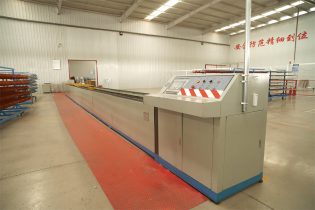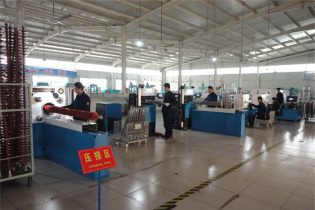Fiberglass rods play a crucial role in the production of silicon rubber insulators for electrical overhead lines, serving as a vital component of composite insulators. Also referred to as composite or polymeric insulators, these insulators leverage fiberglass rods as their supporting core material.
The fiberglass rod, aptly named for its composition, is crafted from fiberglass material and serves as the supporting core for silicon rubber insulators. Comprising numerous fiberglass threads, this rod exhibits the capability to withstand high tension loads in the vertical direction. This inherent strength is a key factor in its selection as the supporting core for composite insulators, particularly in applications such as tension-type and suspension insulators used in electrical overhead lines. The strategic use of fiberglass rods enhances the overall performance and reliability of composite insulators in demanding electrical transmission environments.
Excellent Dimensional Stability
The material excels in maintaining consistent and reliable structural integrity, ensuring that it retains its shape and dimensions under various environmental conditions.
Effective High and Low Temperature Resistance
Demonstrating resilience across a broad temperature spectrum, this material remains robust and stable even when exposed to extreme high and low temperatures.
Superior Electric Performance
Possessing outstanding electrical properties, this material exhibits high-performance characteristics related to conductivity, insulation, and other critical electrical factors.
Exceptional Corrosion Resistance
Withstanding the impact of corrosion, the material showcases a robust resistance to deterioration caused by chemical reactions, enhancing its longevity and reliability in corrosive settings.
Favorable Surface Properties
Boasting advantageous surface characteristics, this material features properties like smoothness, cleanliness, and resistance to wear or abrasion, contributing to both its functional capabilities and aesthetic appeal.









